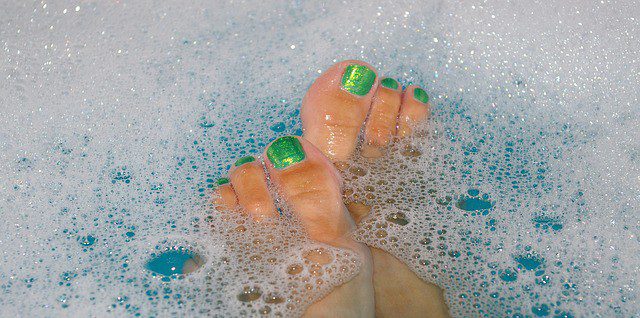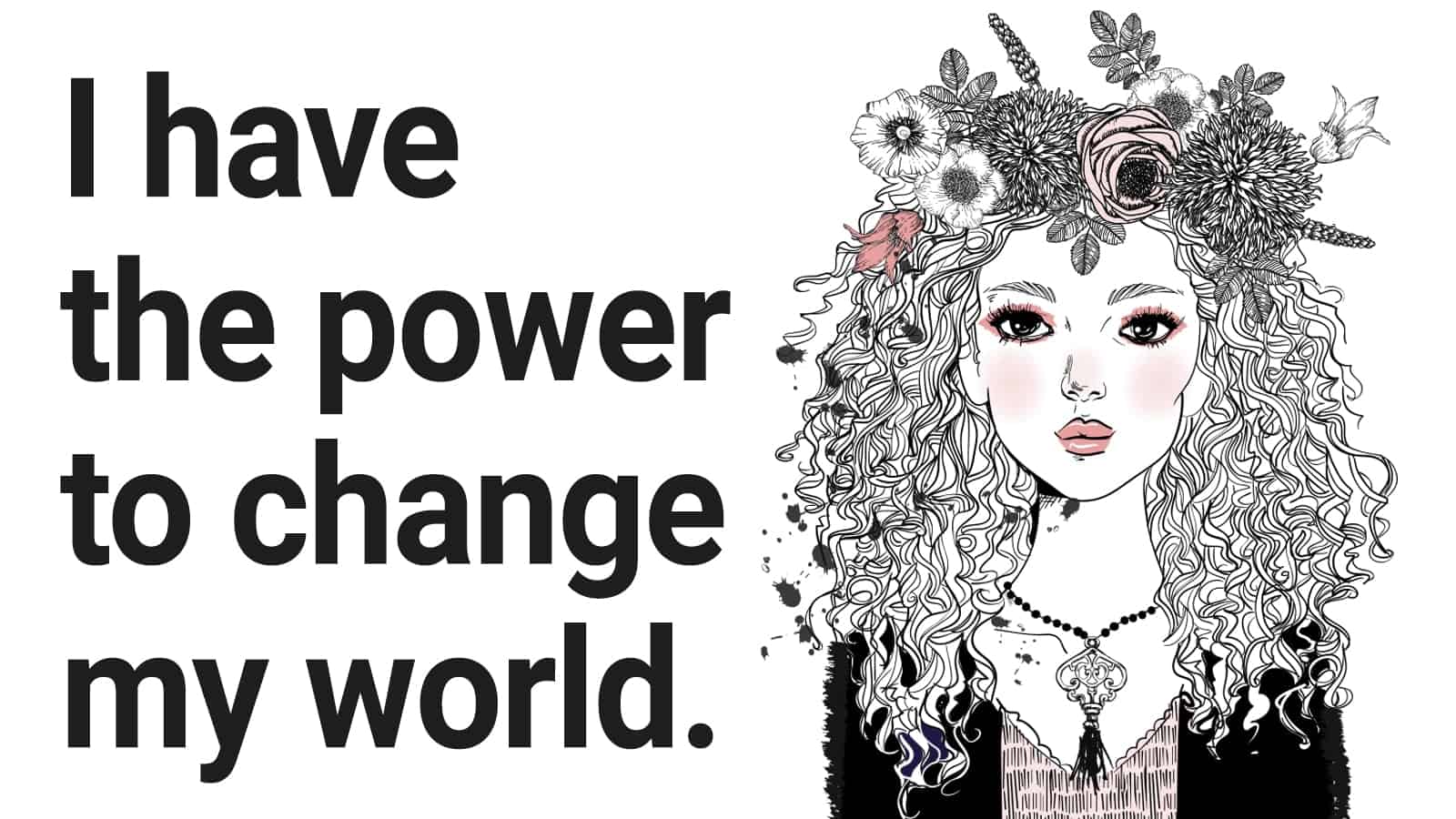Self care is the mantra of the year, yet many self care tips floating around don’t have any science behind them. Others come across as so farfetched they can’t be right.
We want our self care tips to work for us. After all, we only have so many hours in the day, and self care often pushed to the bottom of our to-do lists. There’s no time to do things that don’t help our wellbeing.
Fortunately, we don’t have to waste time. This list of 21 science-backed self care tips will have you feeling the positive effects in no time flat. When you feel better, you’ll do better in life!
31 Self Care Tips
Tip 1 – Surround Yourself with Scents
Scents, in this case, can be natural or artificial. Practices like aromatherapy actually trigger different parts of the brain. Each scent has a different effect, so try out several.
Regular kitchen rosemary has the power to increase memory, for example. (1)
Tip 2 – Go Outdoors
Whether you prefer to go hike a mountain or sit in the garden, being outdoors is great for your health. Science shows that being outside actually helps your brain relax and increases your mental energy. (2)
Tip 3 – Dance Like No One is Watching
Who doesn’t love a good dance party? Now we know that dancing ourselves silly every day has health benefits beyond the obvious calorie count due to its requirement to interconnect various parts of the brain. (3)
Tip 4 – Declutter Your Spaces
No one likes clutter, but we often find ourselves putting off organizing. New research suggests that office, home, and digital clutter affect our inner peace. Office clutter can even prevent you from getting promoted, so pick a time to declutter.
Tip 5 – Explore Your Spirituality
As humans, there’s no one guiding spirituality principle. However, adding a little bit of what you believe in your everyday life does have health benefits, including reducing stress. It also helps you ground and connects you with the world. (5)
Tip 6 – Indulge Yourself
Getting a massage is one of the ultimate indulgences. Often it feels as though all the tensions rub away over the course of a session. It also improves muscle performance and blood flow.
Tip 7 – Cuddle It Out
Humans need physical contact on a chemical level. Our bodies produce a hormone called oxytocin, which counteracts stress. One of the best ways to get that contact is to cuddle. Cuddling benefits both the giver and the receiver in the hormonal release.
Tip 8 – Laugh Often (It’s great self care!)
We all know laughing puts us in a better mood. Did you know it also stimulates many responses inside our bodies? Indeed, each laugh stimulates your organs and circulatory system.
Tip 9 – Unplug Your Notifications
You wouldn’t think to leave home without your phone these days. However, being constantly reachable and bombarded with social media is not the healthiest habit. Instead, it’s time to turn off the notifications, especially if it’s causing mental health issues.
Tip 10 – Learn about Biofeedback
Biofeedback is a practice using electronic monitoring to teach someone how to control natural bodily functions. You practice bio-feedback when you breathe purposefully, however, the practice goes beyond that. Over time, biofeedback teaches us how to trigger certain automatic body reactions when we’re stressed.
Tip 11 – Cook Something
We all know there’s something rather therapeutic about vigorously chopping something into tiny pieces. There’s preliminary research that cooking helps confidence levels and mood as well. All those benefits while making something good for us?
Tip 12 – Meditate
We’ve heard about the benefits of meditation for years, but somehow the benefits are a little foggy. The big benefit is the inner peace many find with meditation. However, regular meditation may be useful for decreasing blood pressure as well.
Tip 13 – Catch More Zs
In the age of everything, we forget that our bodies need rest. While the minimum recommendation for sleep in adults is seven hours, many find that’s simply not enough. You can create good sleep just like you would any other habit, by sticking to a schedule.
Tip 14 – Supplement Away
Depending on the season, we lack certain vitamins. Many people come up with a vitamin D deficiency in the winter, and that affects their mood. By adding a supplement (or consciously choosing foods every day that contain it), people improved their cognitive performance and mood.
Tip 15 – Just Move
Any kind of movement will do for this one. Movement increases circulation and muscle use, which counteracts the negative side effects of a sedentary lifestyle. Many of us live sedentarily without realizing it on account of the work we do.
Tip 16 – Reconnect with Friends
We’ve all had spells where we felt alone in the world. However, these spells have a cure in reconnecting with our friends. Just talking to them boosts our self-confidence and relieves stress.
If you’re worried about upsetting your friends, start with a simple hi, how are you, and let the conversation go from there.
Tip 17 – Eat the Rainbow
Our mothers always told us to eat our vegetables. As it turns out, she was right. Eating all the colors in the rainbow in vegetables is good for us.
Each vegetable and fruit produces slightly different nutrients. However, we can group these nutrients into colors. If you eat the rainbow every week, your body gets the incredible array of nutrients it needs to function properly.
Tip 18 – Take Up a Hobby
Hobbies are things we do in our free time for fun. If a hobby is fun, it reduces our stress levels over time.
Tip 19 – Read More
There’s more to reading than gaining new knowledge. Reading has actually been shown to reduce stress levels and provide mental stimulation over time. It doesn’t even have to be a nonfiction book for you to benefit.
Tip 20 – Plan Something Fun
Even if it’s a day trip, planning something fun helps recharge our batteries. With each trip, we feel a little better. In between trips, remember to take coffee breaks if possible, that helps too on a small scale.
Tip 21 – Use All the Hot Water
Whether you’re a bath person or a shower person, warm water does wonders for how you feel. It loosens muscles, which in turn makes it more difficult to feel the tension.
Tip 22 – Revisit Nostalgia
In this case, nostalgia is all about revisiting simpler times. Whether it’s music or TV shows, old favorites take your mind back, and it reduces stress.
Tip 23 – Practice Positivity
Positive thinking affects your health in many ways. Even back in 1993, researchers have been looking into this as a method to increase resilience and treat illness. Try it by reframing negative circumstances as positive opportunities.
Tip 24 – Journal Regularly
Journaling as a practice helps us sort through our thoughts, feelings, and experiences. As a self care tool, that is invaluable for processing the world. Journaling also helps us release stress.
Tip 25 – Stretch Everything
Not only does stretching feel good, but it can also be preventative. Today’s jobs are mostly sitting and working for specific muscle groups. Adding a set of stretches to get everything moving helps keep your body going.
Tip 26 – Perform an Act of Kindness
Not only does paying it forward feel good, but it also helps you connect. People who perform random acts of kindness tend to find themselves happier and in a stronger support network than those who do not.
Tip 27 – Get It On
Sex is a possibility for both immediate and long-term stress relief, providing it is between consenting adults. As a pleasurable activity, it activates the reward centers in our brains. This, in turn, releases stress-fighting hormones.
Tip 28 – Take a Run
Runners high is a legitimate thing. When running, the long-term exercise creates a feedback loop in our brains, so the release of stress-reducing chemicals continues.
Tip 29 – Write Affirmations
Affirmations written for a few minutes a day can show a dramatic effect. Affirming intrinsic items works better than external things, so focus on internal areas of improvement over time.
Tip 30 – Disappear for a Weekend
When the stress gets to be too much, sometimes the best way to handle it is to unplug and go somewhere for a weekend. There are a lot of options near you for places to visit and just unwind.
Tip 31 – Challenge Your Brain
Whether crosswords, sudoku, or brain training is the theme of the day, all of them challenge your brain to think creatively. While this may not sound like self care, solving puzzles offers the brain a break from regular stress.
Final Thoughts on Self Care
Self care is essential to our overall wellbeing as humans. Without it, life becomes more depressing and overwhelming. So let’s fix that.
Pick an item off our self care list to try and spend 10-15 minutes a day doing it over the course of a week. Let us know what self care practices worked for you!




















